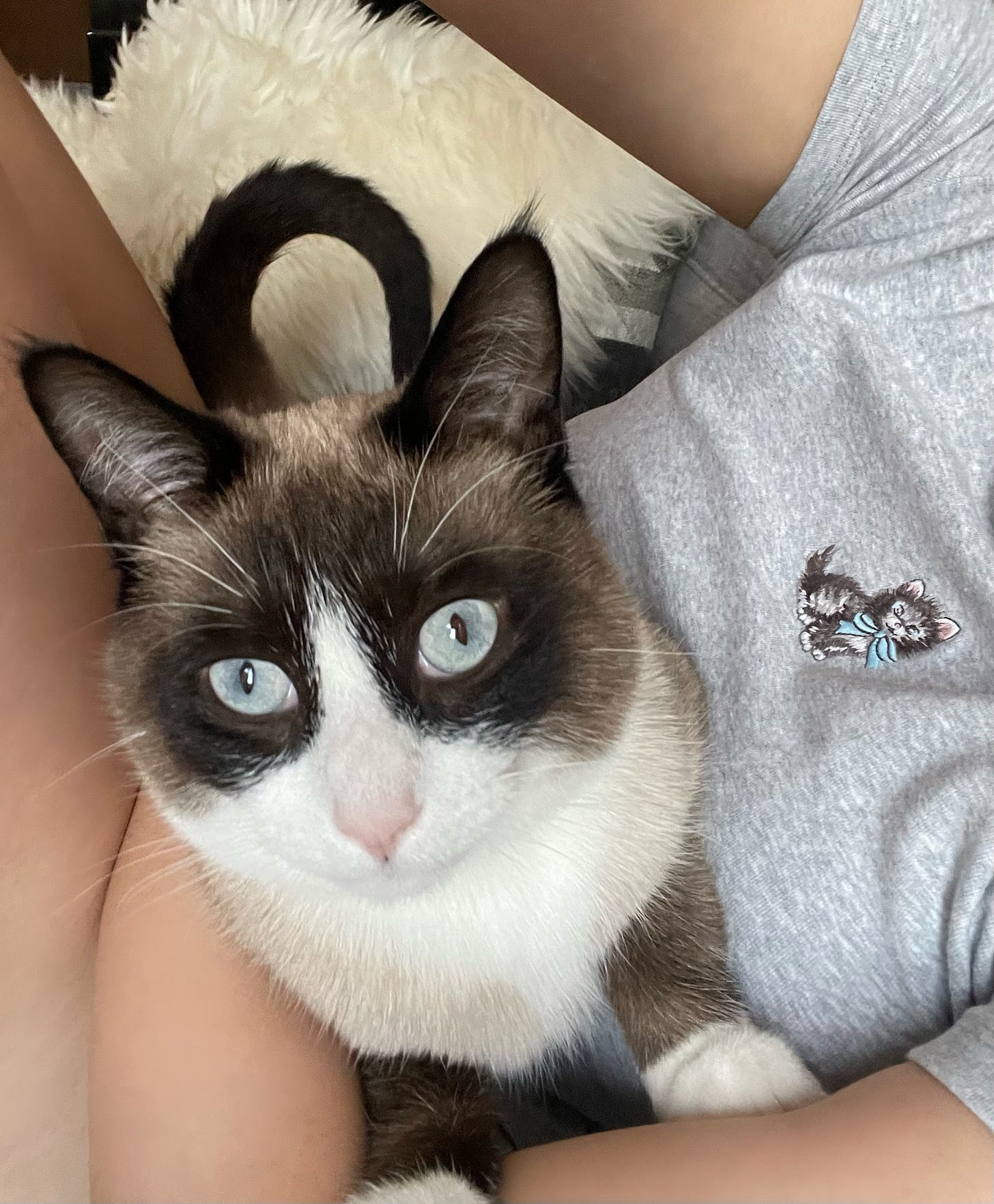How lucky are you allowed to get?
What to do when you feel like life is stupidly great
When I ask my friends how things are going and they’re doing well, they get shy. Most people can tolerate only a moderate dose of happiness before they begin to self-regulate. They grow suspicious of their own good fortune like they’ve stumbled upon a vault left open by mistake. They act like joy is a smuggled gem.
The problem with striving is that it makes people unnerved by fortune that arrives without commensurate suffering. We want the narrative arc and the montage of character-building setbacks. Sudden luck insults the myth of meritocracy.
Chances are, you care way too much about what you deserve and not enough about what you want. What’s so threatening about luck is not the fact of it, but the upward spiral that follows. When nothing is wrong, there’s no story to tell, no problem to solve. You’re left realizing that no one is coming to interrupt it. Most people will invent a disturbance just to feel grounded again because the paralysis of happiness is just too much. Most stress is invented. Some birthdays ago, I felt like I became fully conscious for the first time, and that included a realization about how, like stress, most limitations are self-imposed.
Why stop at competency? Why not be brilliant? Why stop at satisfaction? Why not be ecstatic? Why stop at gratitude? Why not be pleased? Just wear the dress and buy the shoes and burn the candle, do it because it feels good. Take your good timing and excellent taste and run with it. When something really good happens to you, you’re allowed to take it to your room and lock the door and use it privately and hide it under the bed when people barge in.
You may be—without fraud or favor—spectacularly, unfairly, stupidly lucky. You may be kissed without the curse, the inheritance without the fatal car accident, the view without the vertigo. Honestly, if you feel like it, you should just skip gratitude (the Protestant handmaiden to self-loathing), humility (the sly cousin of pride), and go straight to delight. Full-throated, well-dressed, unapologetic, indulgent delight.
After all, why shouldn’t you? Why should you lower yourself to second-class joy when you agreed to never settle for less? It is delicious to be envied. It is the side-effect of living well, and why would you redact your fortune for the comfort of spectators in wooden chairs? If they wished to be happy, they should have chosen more interesting lives. You should go on shining. They’re the ones who need to admit that they’re jealous.
But of course, this is intolerable to the masses, who find luck offensive unless you pay it back in some way. To be alive is already statistically near-impossible. To be well-fed, literate, kissed in the morning—cosmic thievery. How dare you feel unburdened, even for an afternoon? How dare you flaunt your naïveté of how the world really works? Sometimes, the answer really is, well, I really am just luckier than you.
So, how lucky are you allowed to get?
That depends entirely on how little you believe in deserts, on your stomach for asymmetry, and on how long you can stay madly in love before feeling like you can’t leave. Luck isn’t a test, but it is a performance, and the ones who do it best are always the most convincing. How open is your heart for plenitude? How empty are your hands for receiving blessings? How long can you stand to live as if life itself were a gift, undeserved, tax-free, and secured in perpetuity?
Some things are best experienced in moderation, but not luck. Because too much luck is just the right amount of luck.
~








Really timely and loved this, Sherry. I’ve been feeling particularly lucky lately.
Why does it lowkey feel scary to admit I feel the best I’ve ever felt in life? It’s like saying it out loud might tempt fate to mess with me.
But I think it’s still worth acknowledging and celebrating.
There’s often more joy available to us than we think is possible, and that’s a truth worth leaning into.
Years ago a business mentor told me it was a good idea to ask in an interview for managerial positions, if they thought they were lucky. The ones that acknowledged luck, on whole, were much more productive and pleasant to work with.